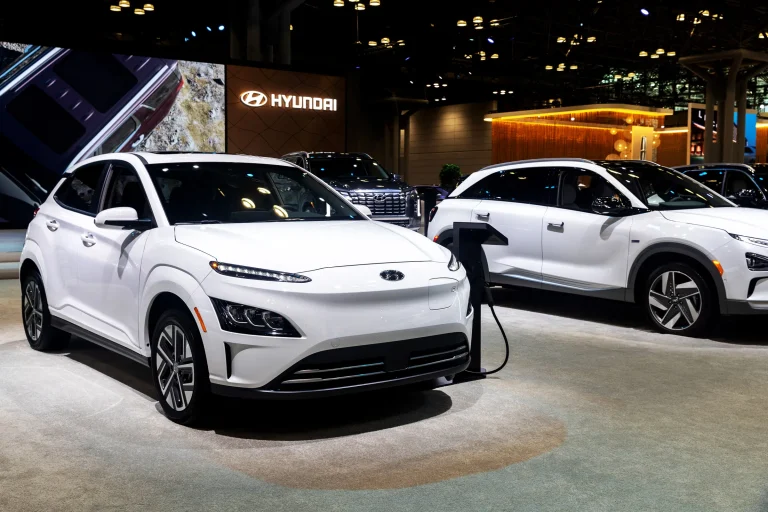🎧 Listen to This Article
As global economies confront mounting pressure to decarbonize, Indonesia is doubling down on its fiscal levers to accelerate the shift toward low-emission transport. Through the newly issued Finance Minister Regulation No. 12 of 2025 (PMK 12/2025), the government is continuing its tax incentives for battery electric vehicles (BEVs) and hybrids. This initiative intersects environmental ambition with industrial pragmatism.
The regulation offers significant VAT and luxury tax (PPnBM) relief for specific locally-assembled EVs and hybrid models that meet domestic content thresholds. But beyond its immediate consumer appeal, this policy sends a deeper signal: Indonesia is positioning its auto sector as a cornerstone of its low-carbon economic future — and it’s using the tax code to make it happen.
Decoding PMK 12/2025: What’s New, What’s Strategic
The Incentives
Under the regulation:
- BEVs (four-wheelers and buses) with ≥40% local content receive a 10% VAT subsidy, reducing consumer VAT to just 2%.
- Those with 20–40% local content get a 5% subsidy, bringing VAT to 7%.
- Selected low carbon emission vehicles (LCEVs) — full/mild/plug-in hybrids — are eligible for a 3% PPnBM subsidy, applied at the manufacturer level.
Notably, these are state-covered taxes (Ditanggung Pemerintah / DTP), applicable from January to December 2025. However, they come with strict compliance requirements: dealers and manufacturers must issue dual tax invoices and submit detailed monthly reports. Failure to comply may result in full tax repayment and penalties.
Industrial Targets, Not Just Emissions
While framed as a climate policy, PMK 12/2025 serves a dual purpose: boosting domestic EV manufacturing. Incentives are tiered based on domestic content (TKDN), effectively rewarding companies that localize supply chains. This aligns with Indonesia’s broader strategy to build an integrated EV ecosystem, from nickel mining to battery production.
The regulation lists qualifying models — such as the Wuling Air EV, Chery Omoda E5, and Hyundai Ioniq 5 — but also allows for periodic updates as new eligible vehicles enter the market.
Strategic Implications for Stakeholders
For Multinational OEMs
Foreign automakers aiming to penetrate Southeast Asia’s EV market must now weigh localization more seriously. With incentives tied directly to TKDN thresholds, imported units (CBUs) may struggle to compete without deeper local investment.
For Policy Architects
This regulation exemplifies how climate-aligned tax incentives can be wielded for industrial policy — a trend not unique to Indonesia. Nations from India to Brazil are increasingly intertwining decarbonization goals with industrial self-sufficiency, especially in strategic sectors like transport and energy.
For Public Transport Planners
Importantly, PMK 12/2025 doesn’t just target private vehicle buyers. Certain electric buses also qualify — opening the door for cities and corporates to scale up mass transit electrification using fiscal leeway.
Risks, Red Flags & Compliance Triggers
Despite its strategic upside, the policy isn’t without risk — particularly for dealers and manufacturers.
Misreporting or abuse of the incentive — for example, claiming benefits for unqualified vehicles or backdating sales — triggers full tax clawback and administrative penalties.
Given that many sales are completed well before tax audits occur, this creates a latent compliance liability. Businesses must implement robust invoice segregation, real-time reporting, and documentation protocols to avoid post-sale exposure.
Bigger Picture: A Step Toward Net Zero — or a Fork in the Road?
Indonesia’s continued EV tax incentives show how fiscal policy can serve as both carrot and compass — guiding consumer behavior while nurturing strategic industries. But the efficacy of such incentives hinges on enforcement integrity and market readiness. Without a concurrent ramp-up in EV infrastructure and consumer awareness, even generous tax breaks may fall short of shifting the needle on carbon emissions.
Still, in a year marked by global economic uncertainty and an intensifying race toward net zero, PMK 12/2025 is a statement of intent — a signal that Indonesia sees green policy as good economics.
The question now is whether other jurisdictions in the region will follow — and how global automakers will respond.
For further details, clarification, contributions, or any concerns regarding this article, please contact us at editorial@tax.news. We value your feedback and are committed to providing accurate and timely information. Please note that our privacy policy will handle all inquiries



